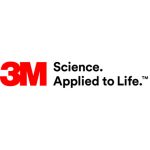In recent years, the synergy between technology and healthcare has ushered in an era of unprecedented progress, reshaping the landscape of disease detection and treatment in ways previously deemed unimaginable. Among the myriad of ailments, breast cancer stands as a formidable adversary, affecting women and men worldwide.[1]
While breast cancer has long been a focal point of medical research and innovation, we have recently witnessed an accelerated pace of advancement, driven by the growing adoption of cutting-edge technologies by healthcare professionals (HCPs). In this wave of progress, the integration of artificial intelligence (AI) has emerged as a catalyst for innovation in breast cancer detection and diagnosis, ultimately enhancing patient outcomes.
AI has transcended conventional boundaries, offering a new understanding of breast cancer’s complexities. Its impact is felt not only in laboratories and hospitals, but throughout the healthcare system, helping to shape a future where patient outcomes are not just improved, but redefined.
Early—and Precise—Detection
Fighting a disease as challenging as breast cancer is daunting. The integration of AI into the earliest stages of detection is crucial. The early detection of breast cancer has been proven to have a measurable impact on patient outcomes. AI, with its ability to process vast amounts of data quickly and accurately, plays an irreplaceable role in this stage. When applied to mammograms, MRIs and other imaging data, AI algorithms can detect minute abnormalities—invisible to the human eye—that have the potential to be indicative of early-stage breast cancer. These advanced algorithms can recognize patterns and relationships in the images that go well beyond current capabilities. The advantage of AI lies not in its ability to be ‘better’ or to ‘replace’[2], but in its ability to quickly analyze and quantify images and relationships at scale, enabling more accurate and more rapid screening of patients. Consequently, HCPs can focus on what they were trained for, identifying and treating potential cases as soon as possible, supporting improved outcomes.
Additionally, while the sheer volume of data processing capabilities is set to reimagine breast cancer diagnostics, AI’s ability to process vast datasets, recognize intricate patterns and generate predictive insights has elevated the precision of diagnostic tools.
In the realm of cancer detection, where early intervention can be the difference between life and death, AI-powered technologies have become allies, enabling medical professionals to identify subtle anomalies and irregularities with remarkable accuracy. By doing so, AI has not only expanded the horizons of what is diagnostically possible but has also instilled a newfound sense of hope among patients and clinical care teams alike.
Informed Clinical Decision-Making
The influence of AI extends far beyond the initial stages of diagnosis. Ongoing clinical decision-making in breast cancer treatment is complex, involving the assessment of a myriad of factors. AI systems excel in processing and analyzing vast datasets from diverse sources, including medical histories, treatment outcomes and the latest research findings. By cross-referencing this data, AI can generate evidence-based recommendations for clinical care teams, often outperforming traditional tools like the Modified Early Warning Score (MEWS)[3]. These recommendations empower clinicians to make informed decisions about treatment options, ensuring that patients receive the most current and effective care available. Informed clinical decision-making not only enhances the efficacy of treatments but also fosters a sense of confidence among patients, knowing that their treatments are based on the latest scientific advancements.
Clinical care teams, armed with the insights generated by AI algorithms, can make informed decisions rooted in data-driven analysis. The amalgamation of medical expertise, existing procedures and AI-generated insights ensures that treatment plans are not only evidence-based but also tailored to the unique needs of each patient.
In this symbiotic relationship between HCPs and artificial intelligence, the essence of patient care is redefined, where better-informed decisions lead to more successful treatments and care.
Enhanced Pathological Analysis
Pathological analysis remains the gold standard for diagnosing breast cancer[4]. As technology in healthcare becomes increasingly available, AI-powered risk analysis offers improved patient assessment. These innovations aid HCPs in analyzing tissue samples at a microscopic level, identifying and quantifying the hard-to-detect differences between healthy and cancerous cells. Actively assisting pathologists by highlighting potential areas of concern, whether discernible to the human eye or not, enables a more accurate and expedited diagnosis. AI introduces a level of precision in pathological analysis that not only reduces the potential margin of error, but also ensures that patients receive timely and more personalized treatments.
Proactive Follow-Up Care
These new breast cancer diagnostic technologies provide information critical to the decisions affecting treatment and patient management throughout the continuum of care, ensuring that survivors are supported comprehensively in their journey toward recovery[5]. AI-driven predictive analytics has the potential to revolutionize the approach to follow-up care through the continual analysis of patient data, including treatment response, lifestyle changes and genetic factors. In considering these factors, AI can proactively identify the potential risk of recurrence or further complications. Patients at high risk can receive more aggressive treatment. Proactive follow-up care not only improves the overall quality of life for survivors but also provides them with the assurance that their health is continuously monitored and supported.
AI’s Promise in Breast Cancer Care
Breast cancer is a highly diverse disease, varying not only between patients, but also within the same patient over time. AI-powered technology can help. By integrating genetic profiles, medical histories and lifestyle factors, AI has the ability to analyze and interpret this complex data and elevate potential treatment strategies. AI-powered analysis enables the care team to formulate treatment strategies that are tailored to the specific genetic makeup and health conditions of individual patients. Personalized treatment plans not only increase the effectiveness of therapies, but can also minimize side effects and maximize efficiency, enhancing the overall quality of the patient’s journey.
In essence, the integration of AI into breast cancer detection and treatment represents not just a technological milestone but a profound paradigm shift in the cancer care continuum. It embodies a vision where human expertise, compassion and AI come together to propel us into a future where breast cancer, once a feared adversary, becomes a conquerable feat.
As these advancements continue to evolve, the future of breast cancer detection and treatment holds the promise of more precise, individualized and compassionate care for all those affected by this disease. This more precise and personalized approach holds the promise of better patient outcomes and new levels of health care efficiency and effectiveness.
References:
[1]https://www.bcrf.org/breast-cancer-statistics-and-resources/#:~:text=Breast%20cancer%20is%20the%20most%20common%20cancer%20in%20women%20overall,140%20of%20184%20countries%20worldwide.
[2] https://www.ncbi.nlm.nih.gov/pmc/articles/PMC10328041/
[3]https://www.aha.org/aha-center-health-innovation-market-scan/2023-05-09-how-ai-improving-diagnostics-decision-making-and-care#:~:text=AI%20algorithms%20analyze%20a%20vast,patient%20over%20the%20next%20several.
[4]https://www.sciencedirect.com/science/article/abs/pii/S1568494621008085#:~:text=For%20a%20favorable%20prognosis%20of,stained%20with%20Hematoxylin%20and%20Eosin
[5]https://www.basscancercenter.com/cancer-blog/breast-cancer-follow-up-care-guidelines#:~:text=After%20completing%20your%20breast%20cancer,emotional%20and%20physical%20well%2Dbeing.






